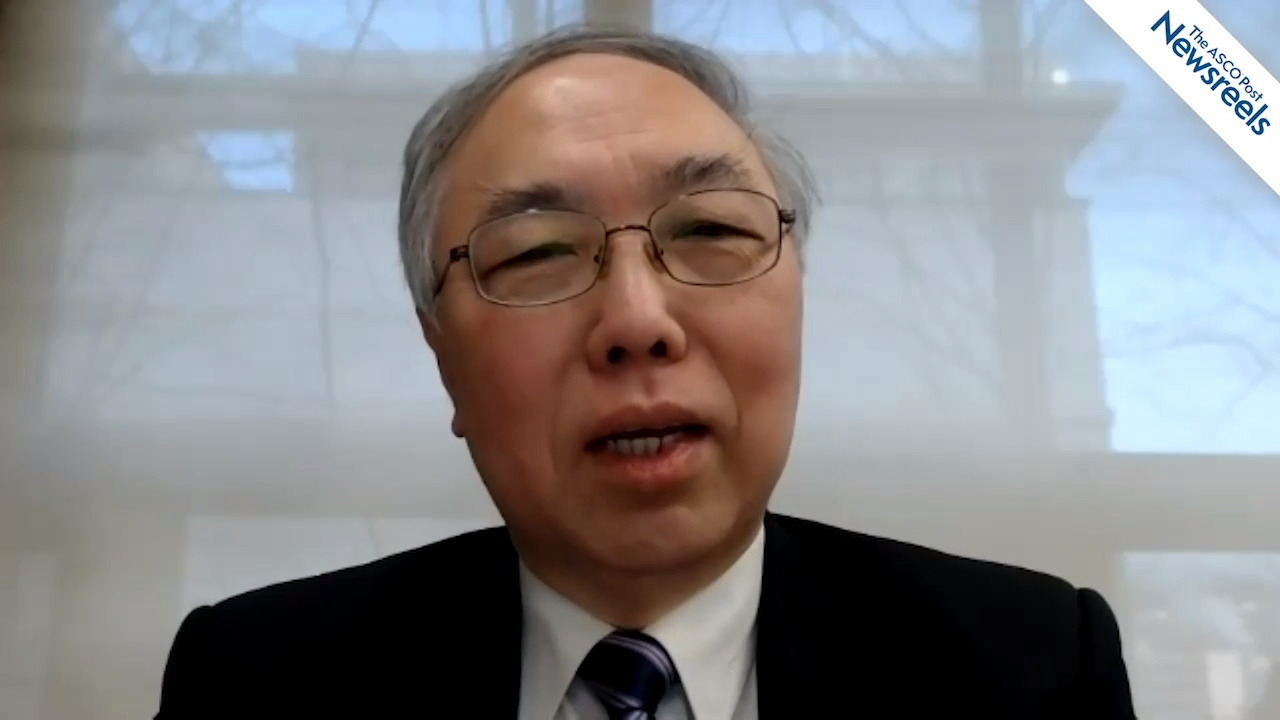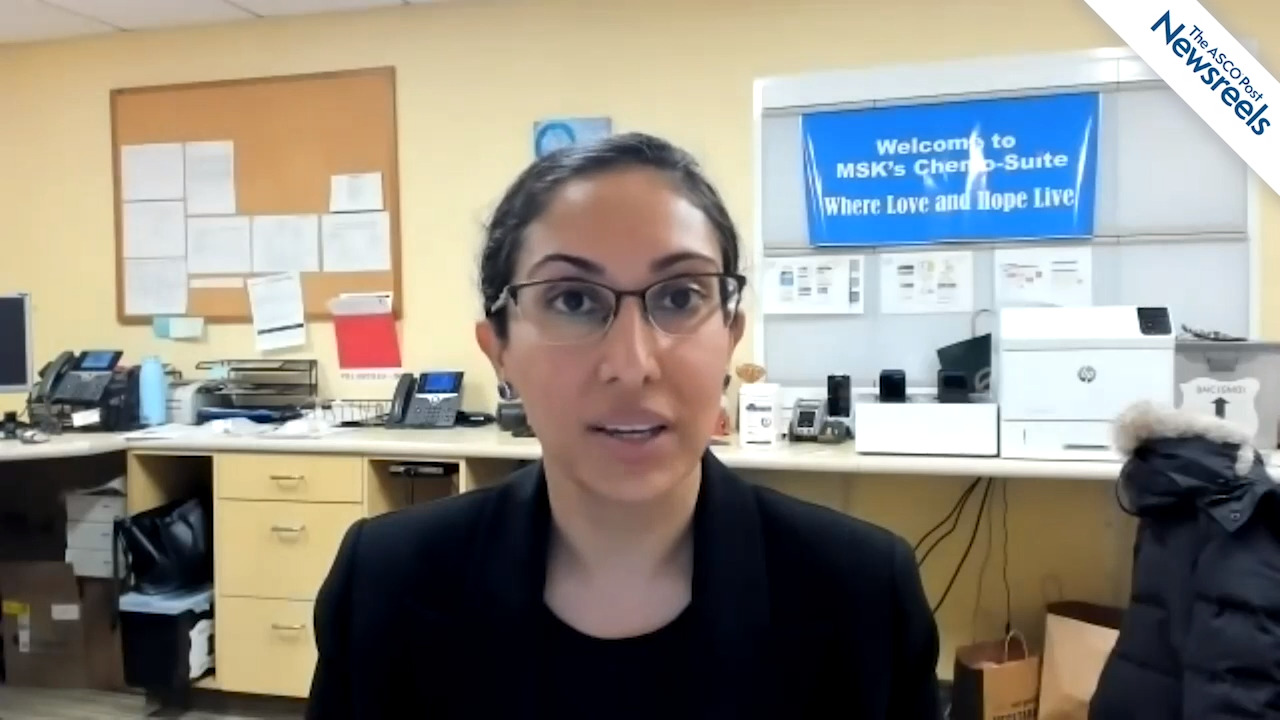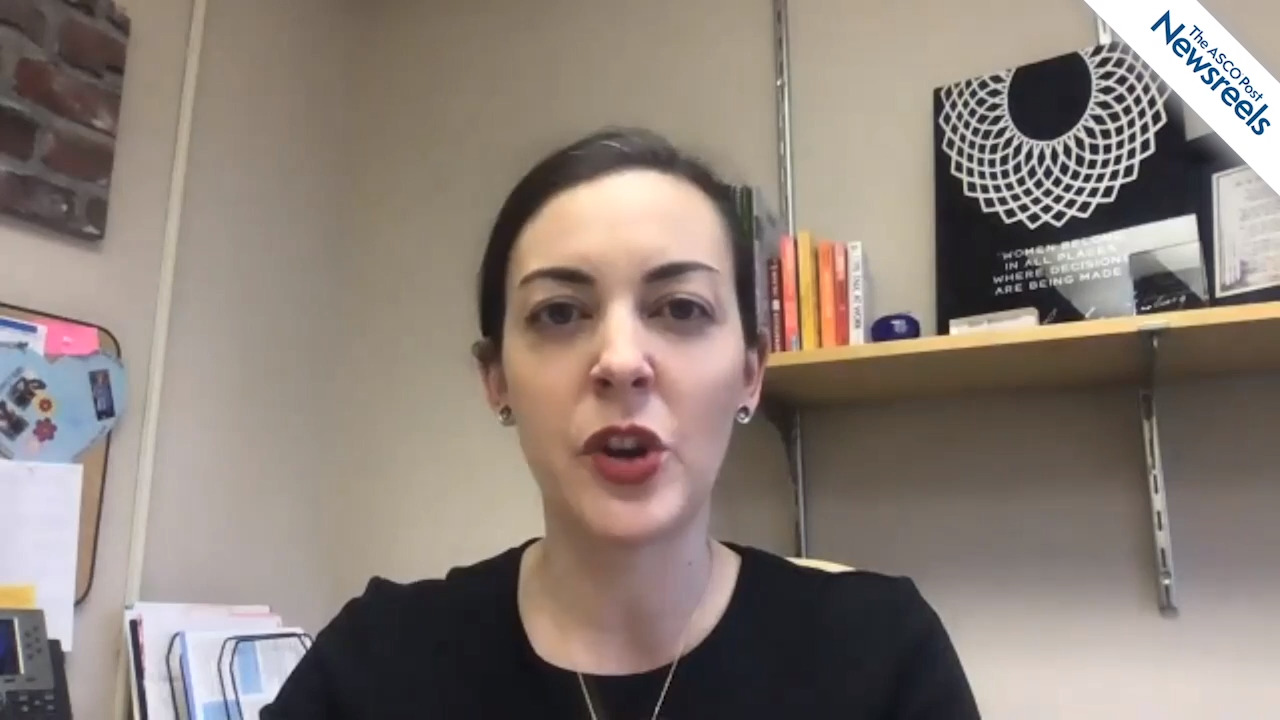Amir A. Jazaeri, MD, on Metastatic Cervical Cancer: The Role of Immunotherapy
SGO 2021 Virtual Annual Meeting on Womens Cancer
Amir A. Jazaeri, MD, of The University of Texas MD Anderson Cancer Center, discusses data on the safety and efficacy of adoptive cell transfer using autologous tumor-infiltrating lymphocytes (LN-145) to treat patients with recurrent, metastatic, or persistent cervical carcinoma whose tumors have progressed on prior systemic therapy (ID # 10224).
The ASCO Post Staff
Rebecca S. Kristeleit, MD, PhD, of the University College London and UCL Cancer Institute, discusses efficacy and safety results from the phase III ARIEL4 study, which showed that rucaparib improved progression-free survival vs standard-of-care chemotherapy in patients with BRCA-mutated, platinum-resistant, or platinum-sensitive relapsed ovarian cancer (ID #10191).
The ASCO Post Staff
Supriya Chopra, MD, of Tata Memorial Centre, discusses a final analysis of the phase III PARCER trial, which showed that image-guided intensity-modulated radiotherapy is superior to conventional radiotherapy in reducing bowel toxicity in women with cervical cancer. Acute diarrhea was also reduced, with no difference in disease-related outcomes (ID# 10224).
The ASCO Post Staff
Hyun C. Chung, MD, of Yonsei Cancer Center and Yonsei University College of Medicine, discusses phase II findings from the KEYNOTE-158 study, which support the use of pembrolizumab for patients with recurrent or metastatic cervical cancer that has progressed on or after chemotherapy and whose tumors express PD-L1.
The ASCO Post Staff
Vicky Makker, MD, of Memorial Sloan Kettering Cancer Center, discusses phase III findings showing that lenvatinib plus pembrolizumab may improve overall and progression-free survival, as well as overall response rate, compared with treatment of physician’s choice for advanced endometrial cancer. These results were achieved regardless of mismatch repair status following platinum-based chemotherapy (ID #10191).
The ASCO Post Staff
Brittany A. Davidson, MD, of Duke University, discusses the development and validation of the GO-POP model (Gynecologic Oncology Predictor of Postoperative opioid use), an individualized patient-centered predictive tool designed to help avoid overprescribing pain medications (ID# 10253).





